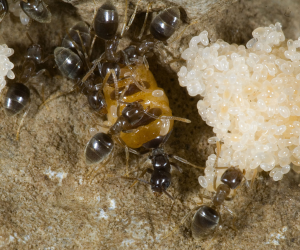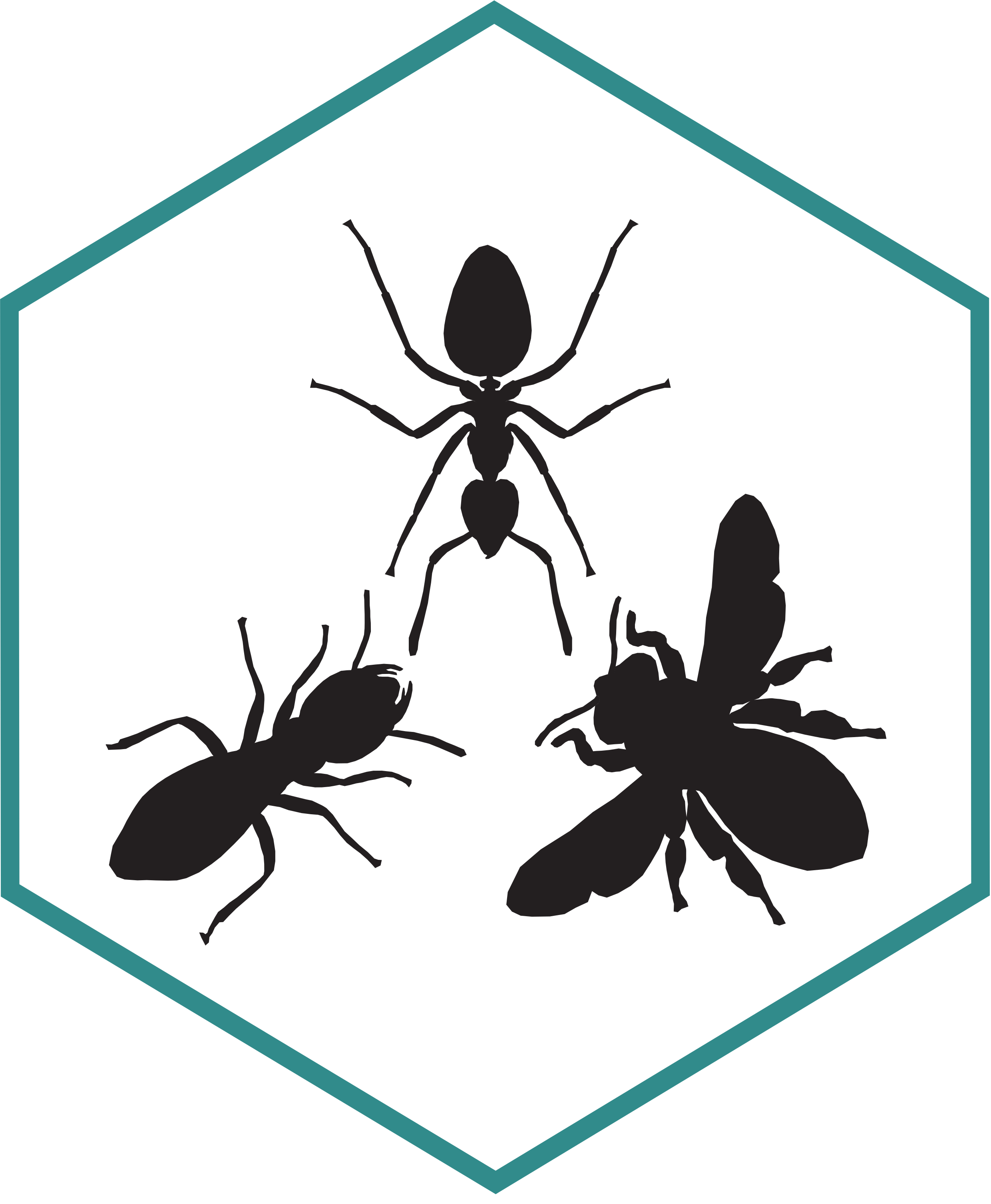This is the tentative programme of the conference. Minor changes might be applied though.
SUNDAY, 17TH OF SEPTEMBER – Emanuel de Martonne st. 1, Casa Universitarilor
17:00 – Arrival and registration of participants
19:00 – Welcome cocktail
MONDAY, 18TH OF SEPTEMBER – Zoology Building of the Faculty of Biology and Geology, Clinicilor st. 5-7
8:00–8:45 Registration of participants
8:45–9:00 Conference opening
Plenary talk
9:00 From the past to the present: 100,000,000 years of ant history. Alexander Radchenko
Section chair: Simon Tragust
10:00 Social insect aging from a Cardiocondyla-biased perspective. Luisa María Jaimes Niño
10:15 Effects of colony fusions on evolutionary optimal colony size in a termite species. Stephan Lohmar
10:30 Convergent evolution of helping behaviour in a neotropical Army ant. Juan José Lagos-Oviedo
Coffee Break
Section chair: Tomer J Czaczkes
11:15 Ecological drivers of sociality in Xyleborinus saxesenii, a widely distributed ambrosia beetle. Antoine Melet
11:30 Wood-pastures promote environmental and ecological heterogeneity on a small spatial scale: the “ecosystem complex” approach. Adam Lőrincz
11:45 Environmentally driven behavioural trait variation may promote species coexistence in ants. Florian Menzel
12:00 Effect of different wood-pasture habitat types on ant functional traits. István Elek Maák
Lunch
Plenary talk
14:00 Ants under parasitic siege: from specialist to generalist fungi. Enikő Csata
Section chair: Heike Feldhaar
15:00 Social immunity behaviors in ant-nematode interactions. Florian Strahodinsky
15:15 A new puppet-master and its puppet? Behavioural manipulation in the host-parasite system between the fly Strongygaster globula and its ant host. Simon Tragust
15:30 Host-parasite interaction cause morphological changes in a solitary bee and its endoparasite. Silvio Erler
Coffee Break
Section chair: Ioan Tăușan
16:15 Combined stressors in the agriculture – Investigating more effects than honey bee colony development. Karoline Wüppenhorst
16:30 Development of ant colonies in an urban-rural gradient. Gema Trigos Peral
16:45 Communal nest-founding in Euglossa cybelia. Jonas Henske
17:00 Genetic divergence and aggressiveness within a supercolony of the invasive ant Linepithema humile. Iago Sanmartín-Villar
17:30–19:00 – Poster session with drinks
19:00 – Dinner
TUESDAY, 19TH OF SEPTEMBER – Zoology Building of the Faculty of Biology and Geology, Clinicilor st. 5-7
Plenary talk
9:00 Why can social insect queens live so long? Insights from termites. Judith Korb
Section chair: Gema Trigos Peral
10:00 What makes a termite queen? Recurring transcriptomic signatures in termites with totipotent workers. Silu Lin
10:15 Effect of unbalanced diets and individual amino acids on the longevity/fecundity trade-off in a clonal ant. Lina Pedraza
Coffee Break
Section chair: István Maák Elek
11:00 Social insect aging from a Cardiocondyla-biased perspective. Luisa María Jaimes Niño
11:15 Measuring insect flow with AnimalTA’s new feature. Violette Chiara
11:30 Can ants learn to be better at recognition? Melanie Bey
11:45 Ants combine object affordance with latent learning to make efficient foraging decisions. Laure-Anne Poissonnier
12:00 Spatial fidelity and uniform exploration in the foraging behavior of a giant predatory ant. Priscila Elena Hanisch
12:15 Comparative choice assays allow simple and high-sensitivity quantification of ant feeding preference. Tomer J Czaczkes
Lunch
Section chair: Michaela Hönigsberger
15:00 Problem-solving through individual cognition in invasive social insects. Srikrishna Narasimhan
15:15 Histone deacetylase 3 silencing activates transposable elements activity in the dry wood termite Cryptotermes secundus queens. Louis Allan Okwaro
15:30 The expression of elongases and desaturases shed light on the CHC plasticity of honey bees (Apis mellifera). Daniel Sebastian Rodríguez León
Coffee break
16:15–18:00 – General Assembly of the CE section of IUSSI
18:30 – Farewell dinner
POSTER SESSION
Section chair: Violette Chiara
1. Investigating bumblebee foraging decisions with robotic flowers. Mélissa Armand
2. Evolutionary drivers of rescue and wound care behaviour in the termite hunting ant species Megaponera analis. Vibhuti Bhat
3. Genetic structure and mating system of the ant Temnothorax makora. Emil Eichelbrönner
4. The diseased honey bee colony – distribution of a brood pathogen. Sandra Ehrenberg
5. Sanitary grooming in ants is induced by microbe-specific cues. Michaela Hoenigsberger
6. Biophysical and functional consequences of cuticular hydrocarbon variation in ants. Selina Huthmacher
7. Real-time visualization of nest disinfection & its effect on pathogen control in ants. Lukas Lindorfer
8. Effects of sinkhole habitats on the functional and behavioural traits of Myrmica ruginodis. Bonita Ratkai
9. Information provision and use in ant pheromone trails. Federico Javier Olivera Rodriguez
10. Does the macronutrient composition affect the survival of the Myrmica scabrinodis, Nylander 1846 (Hymenoptera: Formicidae) ants infected with the ectoparasitic fungus Rickia wasmannii? Ágota Szabó
11. Revealing a taxonomic mystery: Reticulitermes sp (Isoptera: Rhinotermitidae) in Romania. Ioan Tăușan
WEDNESDAY, 20TH OF SEPTEMBER
Postworkshop trip to Rimetea
Useful information
Oral presentations should be of 10 minutes with +5 minutes allocated for discussions. Pdfs, Microsoft PowerPoint presentations and Prezi are supported formats for presentations. Please, bring a backup version with you and/or upload it in the cloud for any case. If video/audio files are inserted, do check with us for useable formats.
Poster presentations will be of max. A2, portrait orientation. We are working on an environmentally friendly format of online posters. We’ll let you know soon.
\Abstracts should be of max. 200 words. The abstract book will be made available exclusively online.
WiFi will be available at the venue.

